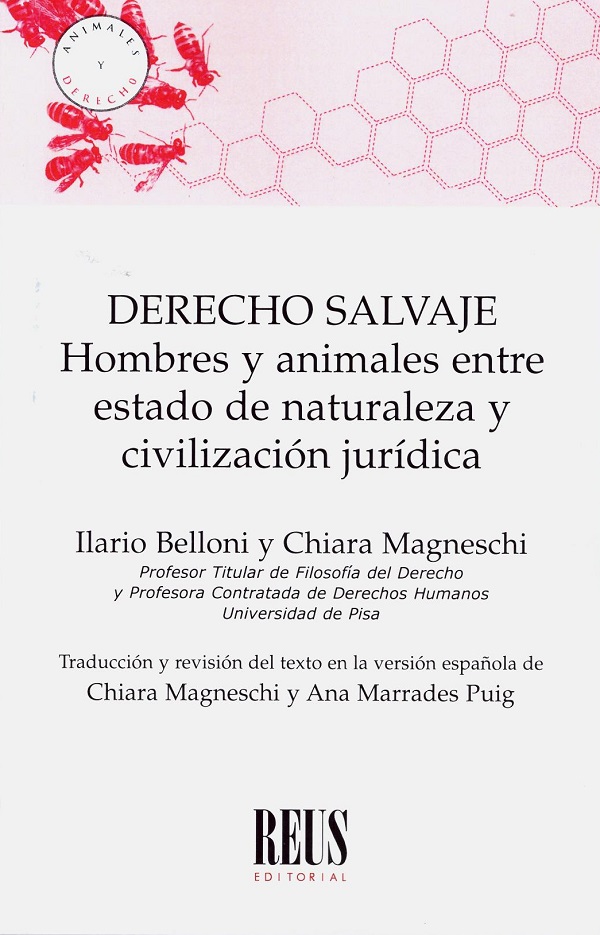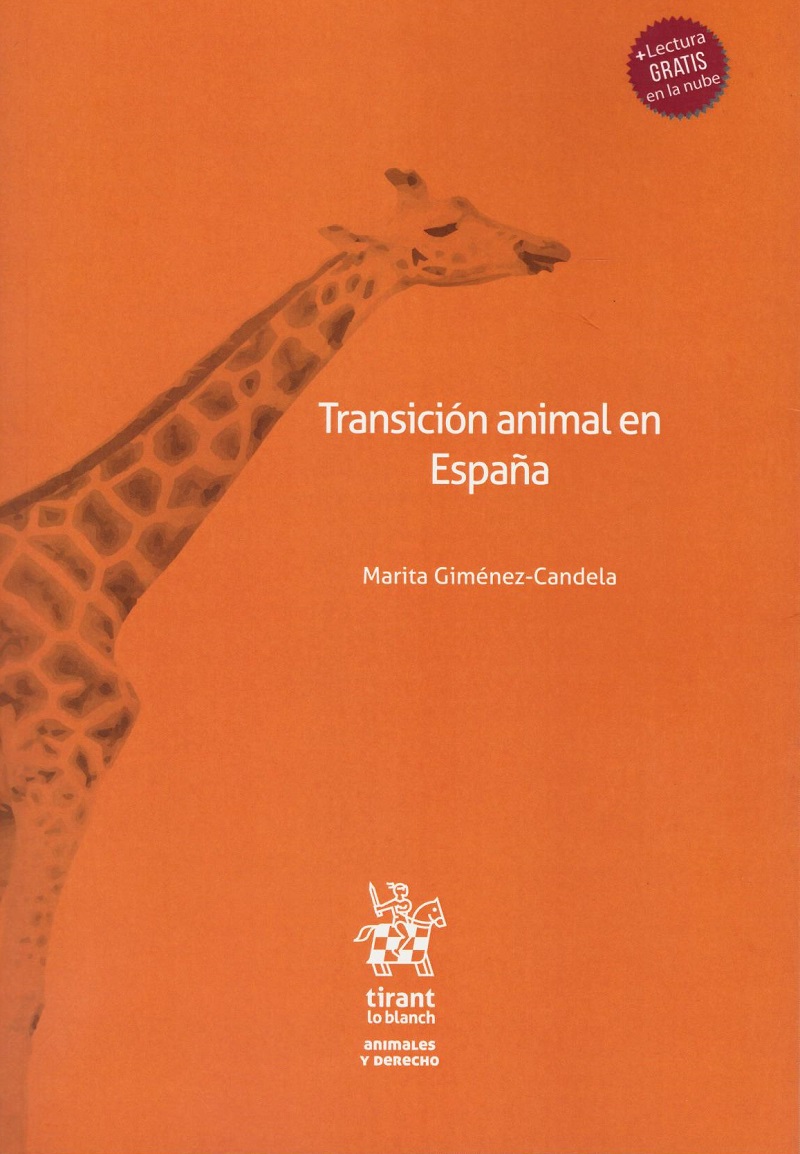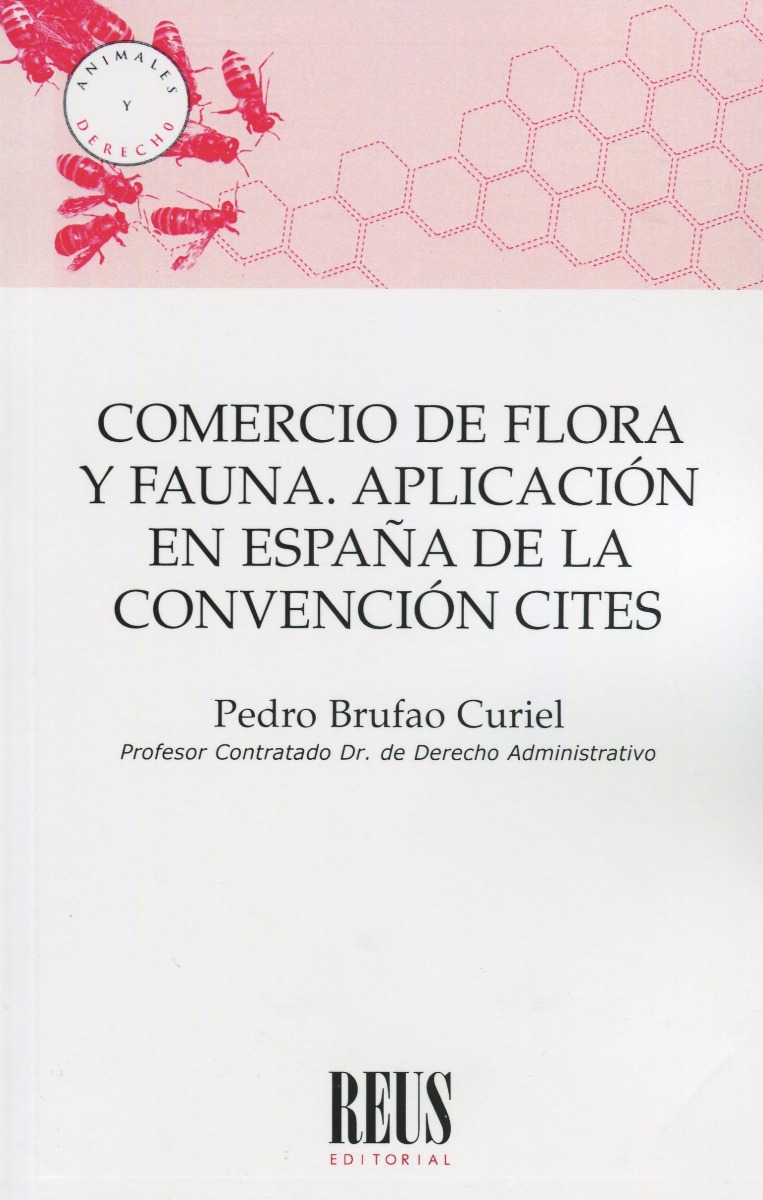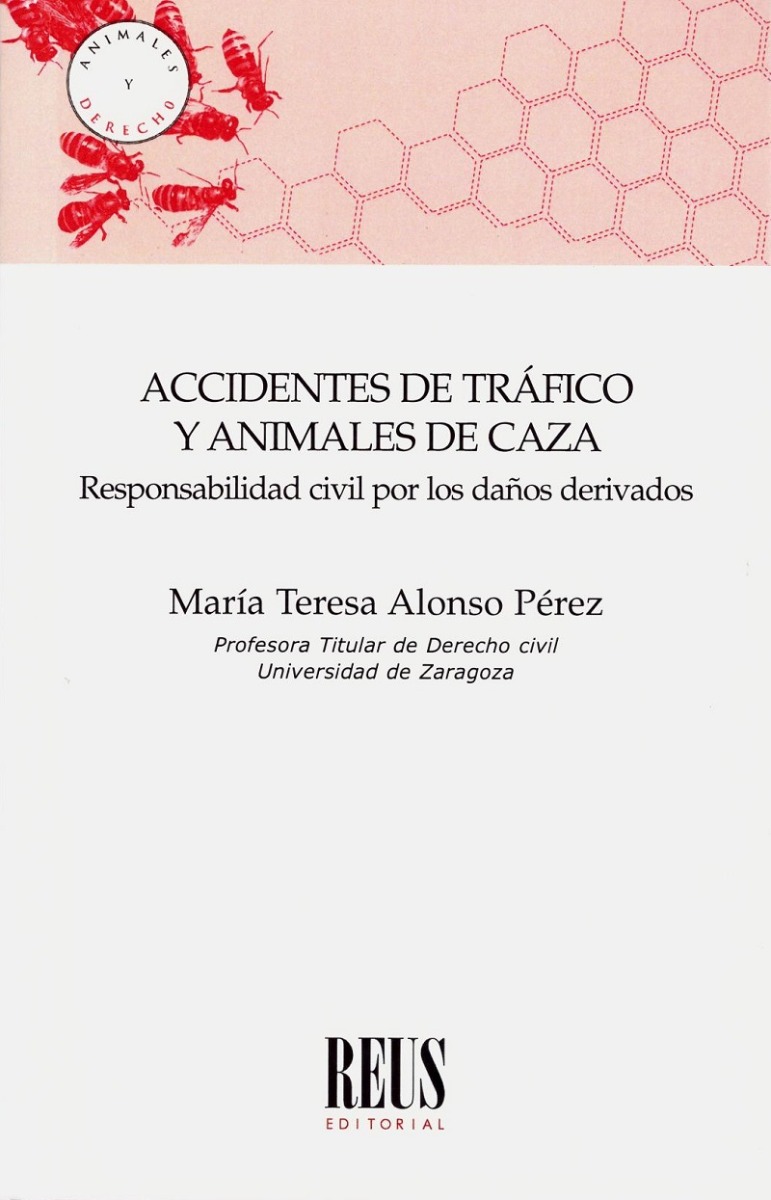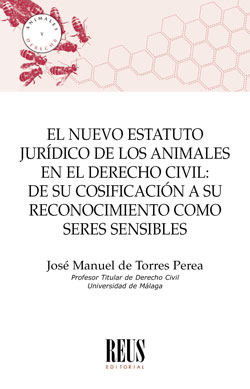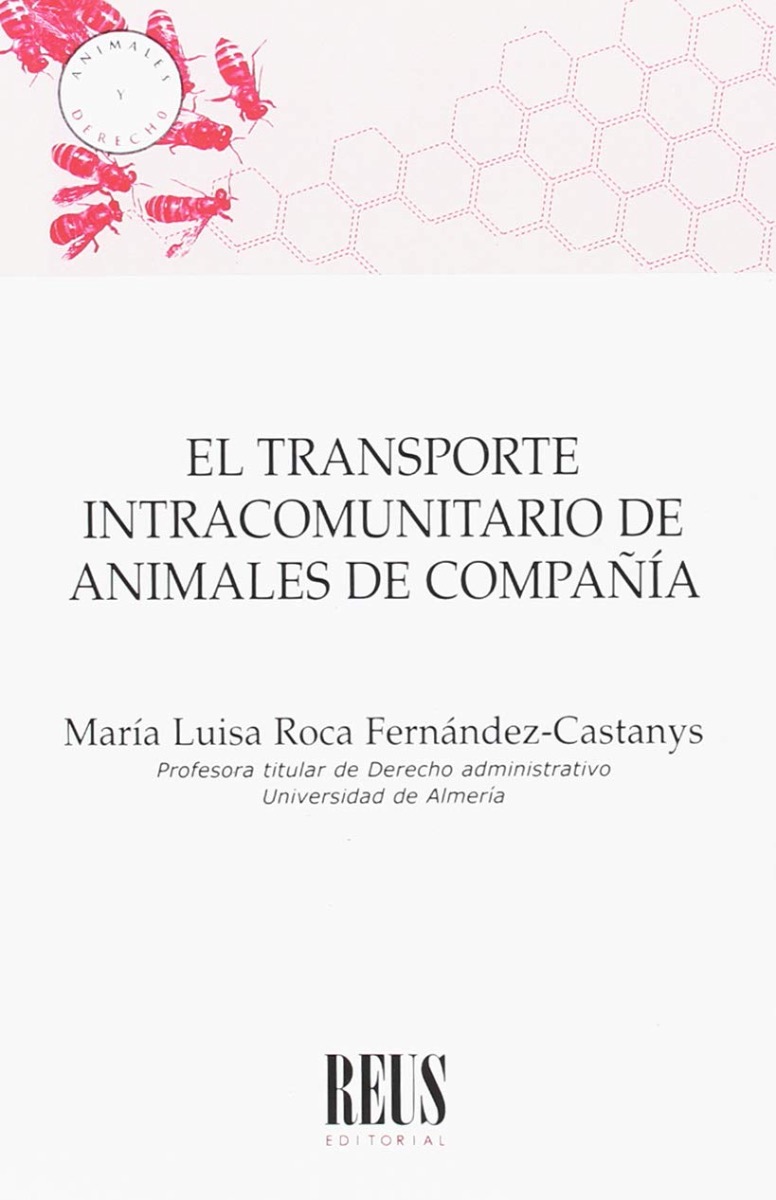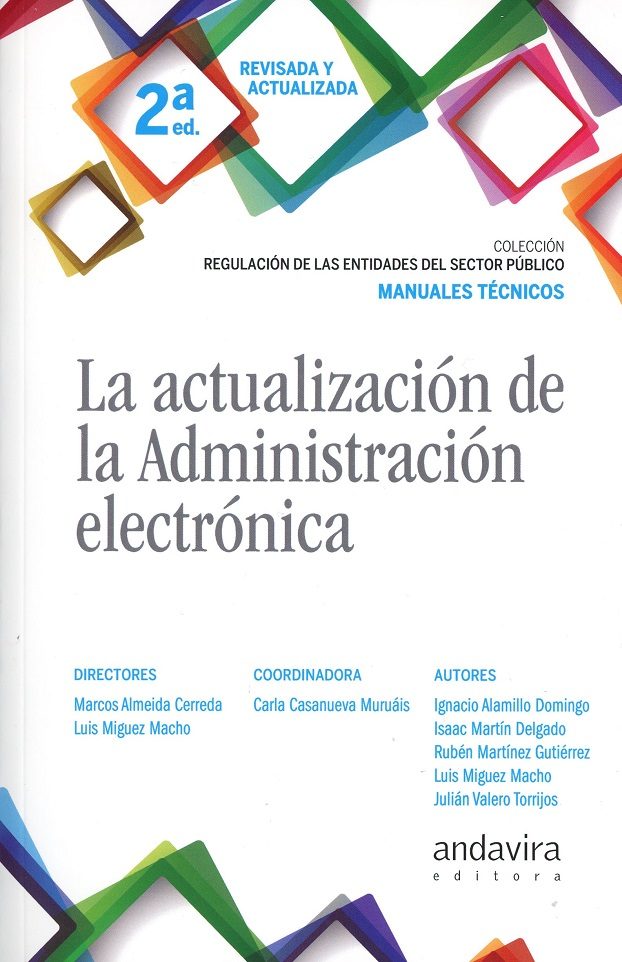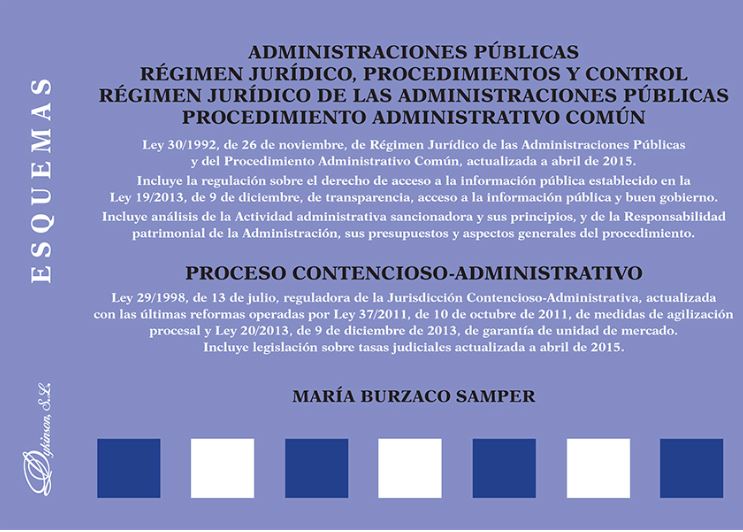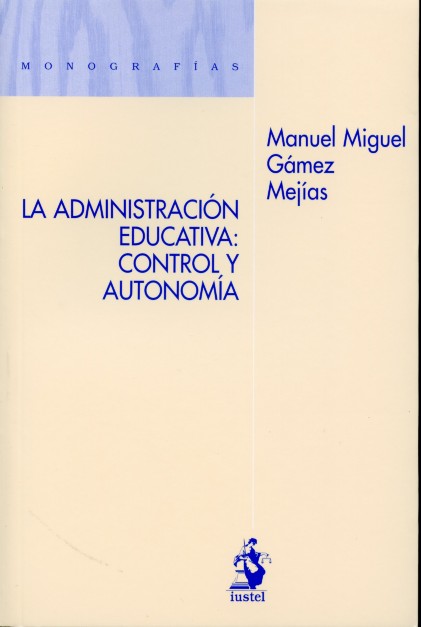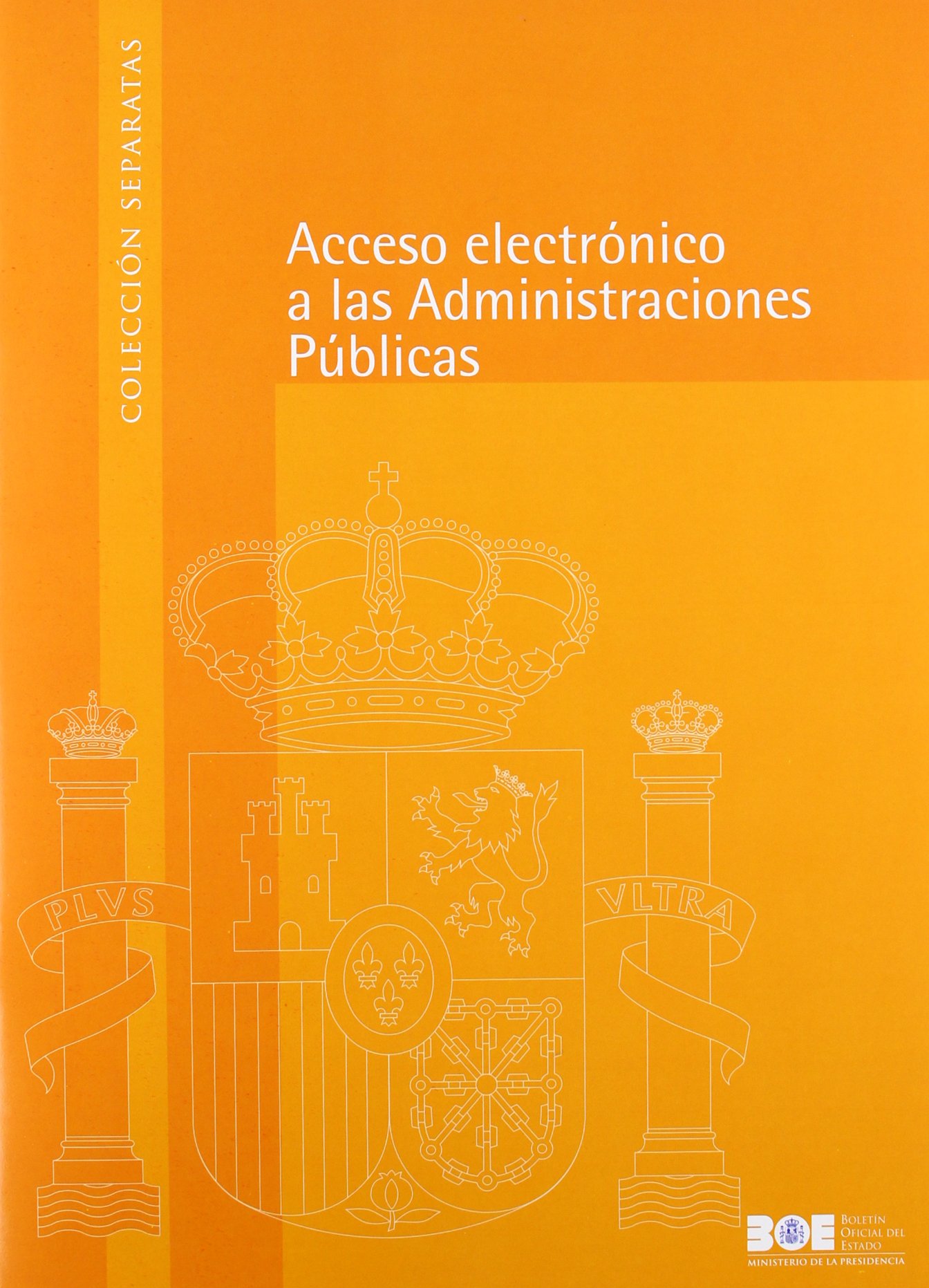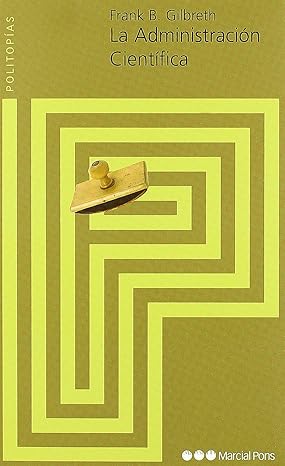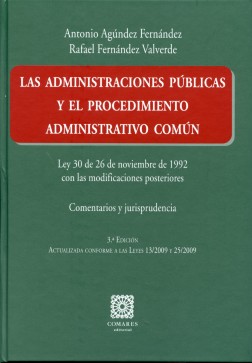¿Es posible repensar la relación jurídica entre hombres y animales desde una perspectiva que no sea solo la de los llamados «derechos de los animales», sino que cuestione los fundamentos filosóficos y las categorías jurídicas del Derecho humano? Básicamente, este Derecho pretende imponer su lógica en el mundo animal y, en general, en el mundo natural «sujetando» los animales tanto positiva como negativamente, convirtiéndolos en receptores de derechos y al mismo tiempo de deberes, de reglas de comportamiento hacia los hombres. Sobre estas suposiciones y en un intento de responder estas preguntas, el volumen propone un análisis crítico de la relación ficticiamente jurídica entre hombres y animales e intenta comprender si es posible elaborar un modelo de derecho «salvaje» que mantenga unidas las instancias de los hombres y de los animales (especialmente de aquellos considerados particularmente «peligrosos» o «dañinos» para los humanos) en un contexto redefinido y repensado de una manera diferente respecto a la manera en que hasta ahora tanto la opinión pública como las instituciones han entendido y practicado la «naturaleza». . Con este trabajo el autor y la autora se enfrentan por primera vez directamente a temas relacionados con la problemática de los animales.
Al hacer esto, se han basado en su formación y sensibilidad filosófico-jurídica y en sus actividades científicas y académicas, que se pueden resumir brevemente de la siguiente manera: . Ilario Belloni es profesor titular de Filosofía del Derecho en la Universidad de Pisa; junto a trabajos sobre diversos temas, como bioética, derecho y literatura, teoría de la ciencia jurídica, se ha ocupado de la fundamentación de los derechos y de la relación entre obediencia y seguridad en las dos monografías Una dottrina «assai strana». Locke e la fondazione teologico-deontologica dei diritti (Giappichelli, Torino, 2011) y Ex obligatione salus? Diritto, obbedienza, sicurezza: percorsi della modernità (Giappichelli, Torino, 2013). . Chiara Magneschi es profesora contratada doctora de Derechos Humanos en el Centro Interdisciplinario de Ciencias de la Paz (CISP) de la Universidad de Pisa; tiene una tesis doctoral sobre el pensamiento jurídico de Marsilio de Padua y diversas publicaciones en el ámbito de la Filosofía del Derecho, como, entre otras, el capítulo de libro «La rinuncia ai diritti e il dovere di sussistenza nella genesi del diritto soggettivo» (Giappichelli, Torino, 2016) y los artículos «Una riflessione sullart. 2 della Costituzione messicana: i diritti indigeni» (Jura Gentium, no 1, 2009), «Diritto, valori e consenso sociale nel lavoro del giudice» (Sociologia, no 3, 2017) y «La pace oltre il diritto» (Ordines, no 2, 2018).
VOLUME 1 METHODOLOGY AND CONCEPTS
1: The Future of Law and Economics, Gary Becker and Richard Posner
Part I: Methodology and Foundations
2: Economic Models of Law, Thomas J. Miceli
3: Empirical Law and Economics, Jonah B. Gelbach and Jonathan Klick
4: Bounded Rationality, Behavioral Economics, and the Law, Christine Jolls
5: Experimental Economics and the Law, Sean P. Sullivan and Charles A. Holt
6: Experimental Psychology and the Law, Tess Wilkinson-Ryan
7: Social Psychology and the Law, Janice Nadler and Pam A. Mueller
8: Evolutionary Law and Economics, Georg von Wangenheim
9: Public Choice Theory and Legal Institutions, Daniel A. Farber
10: Constitutional Economics and the Law, Stefan Voigt
11: Law, Economics, and Positive Political Theory, Emerson H. Tiller
12: Contractarian Perspectives in Law and Economics, Georg Vanberg and Viktor Vanberg
13: Austrian Perspectives in Law and Economics, Shruti Rajagopalan and Mario J. Rizzo
14: Moral Philosophy and Law and Economics, Brian H. Bix
15: Critiques of Law and Economics, David M. Driesen and Robin Paul Malloy
Part II: Concepts and Tools
16: Income Redistribution through the Law, Chris William Sanchirico
17: Cost-Benefit Analysis in Legal Decision-Making, Richard O. Zerbe
18: Well-Being and Public Policy, John Bronsteen, Christopher Buccafusco, and Jonathan S. Masur
19: Value-Driven Behavior and the Law, Tom R. Tyler
20: Ex Ante vs. Ex Post, Donald Wittman
21: Carrots vs. Sticks, Giuseppe Dari-Mattiacci and Gerrit DeGeest
22: Law and Social Norms, Emanuela Carbonara
23: Mechanism Design and the Law, Werner Güth
24: Collective Decision Making and Jury Theorems, Shmuel Nitzan and Jacob Paroush
VOLUME 2: PRIVATE AND COMMERCIAL LAW
Part I: Private Law
1: Economics of Contract Law, Douglas Baird
2: (In) Efficient Breach of Contract Law, Daniel Markovits and Alan Schwartz
3: Economics of Tort Law, Jennifer Arlen
4: Estimating Pain and Suffering Damages, Ronen Avraham
5: Medical Malpractice, Ronen Avraham
6: Economics of Property Law, Henry E. Smith
7: Commons and Anticommons, Michael Heller
8: Economics of Intellectual Property Law, Robert P. Merges
9: Trademarks and Unfair Competition, Clarisa Long
10: Law and Economics of Information, Tim Wu
11: Open-Access and Information Commons, Yochai Benkler
12: Family and Household Economics, Amy Wax
13: Economics of Remedies, Ariel Porat
Part II: Corporate, Commercial and Environmental Law
14: The Economic Nature of the Corporation, Lynn Stout
15: Market for Corporate Law, Roberta Romano
16: Law and Economics of Agency and Partnership, George M. Cohen
17: Banking and Financial Regulation, Steven L. Schwarcz
18: Economics of Bankruptcy, Michelle White
19: Law and Economics of Insurance, Daniel Schwarcz and Peter Siegelman
20: Economics of Environmental Law, Michael A. Livermore and Richard L. Revesz
VOLUME 3 PUBLIC LAW AND LEGAL INSTITUTIONS
Part I: Constitutions, Statutes, and Regulations
1: Optimal Constitutional Structure, Richard A. Epstein
2: Design of Constitutions, Tom Ginsburg
3: Democratic Rulemaking, John M. de Figueiredo and Edward H. Stiglitz
4: Regulatory Decision-Making and Economic Analysis, Mariano-Florentino Cuellar and Jerry L. Mashaw
5: Economics of Federalism, Robert P. Inman and Daniel L. Rubinfield
6: Economics of Tax Law, Daniel Shaviro
Part II: Civil Process and Litigation
7: Judge-Made Law and the Common Law Process, Ben Depoorter and Paul H. Rubin
8: Economics of Civil Procedure, Robert G. Bone
9: Law and Economics of Evidence, Chris W. Sanchirico
10: Economics of Litigation, Bruce Kobayashi
11: Settlement and Trial, Andrew F. Daughety and Jennifer F. Reinganum
12: Legal Fees and Lawyers’ Compensation, Winard Emons
13: The Legal Profession and the Market for Lawyers, Albert Yoon
14: Law and Economics of Alternative Dispute Resolution, Talia Fisher
Part III: Crime and Punishment
15: Economics of Criminal Law: Crime and Punishment, Isaac Ehrlich
16: Economics of Criminal Procedure, Keith N. Hylton
17: Guns and Crime, Anthony A. Braga
18: Prosecutorial Strategies, Roger Bowles
Part IV: Beyond National Legal Systems
19: Economics of Ancient Legal Systems, Geoffrey Parsons Miller
20: Economics of Legal History, Daniel Klerman
21: Economics of International Law, Alan Sykes and Andrew Guzman
22: Enforcement of International Law, Paul B. Stephan
23: International Finance and Sovereign Debt, W. Mark C. Weidemaier and Mitu Gulati
24: Economics of International Organizations, Joel P. Trachtman
25: Choice of Law and Conflict of Laws, Erin O’Hara O’Connor
Edited by Francesco Parisi, Oppenheimer Wolff and Donnelly Professor of Law , University of Minnesota Law School and Distinguished Professor of Public Finance, University of Bologna
Francesco Parisi is the Oppenheimer Wolff and Donnelly Professor of Law at the University of Minnesota Law School and a Distinguished Professor of Public Finance at the University of Bologna. From 2002 to 2006 he held a Chair in Private Law at the University of Milan (Statale), where he was appointed Professore Ordinario per Chiara Fama. From 1993 to 2006 he taught at George Mason University where he served as Professor of Law & Director of the Law and Economics Program and as an Associate Director of the J.M. Buchanan Center for Political Economy. He has authored 18 books and approximately 200 papers in the field of law and economics. Professor Parisi is Editor-in-Chief of the Review of Law and Economics, Associate Editor of the International Review of Law and Economics, and served as Editor of the Supreme Court Economic Review. He is a member of the board of editors of the Journal of Public Choice, the American Journal of Comparative Law, and the Journal of Law, Economics and Policy.
Contributors:
Jennifer Arlen, New York University School of Law
Ronen Avraham, The University of Texas at Austin
Douglas Baird, University of Chicago Law School
The late Gary Becker
Yochai Benkler, Harvard Law School
Brian Bix, University of Minnesota Law School
Robert G. Bone, The University of Texas at Austin School of Law
Roger Bowles, University of York
Anthony Braga, Rutgers University
John Bronsteen, Loyola University Chicago School of Law
Christopher Buccafusco, Cardozo School of Law, Yeshiva University
Emanuela Carbonara, University of Bologna
George M. Cohen, University of Virginia
Mariano-Florentino Cuellar, Stanford University
Giuseppe Dari-Mattiacci, University of Amsterdam
Andrew Daughety, Vanderbilt University
Gerrit DeGeest, Washington University, St. Louis
Ben Depoorter, University of California, Hastings
David Driesen, Syracuse University College of Law
Isaac Ehrlich, University at Buffalo
Winard Emons, University of Bern
Richard A. Epstein, The New York University School of Law
Daniel A. Farber, University of California, Berkeley
John M. de Figueiredo, Duke University
Talia Fisher, Tel Aviv University
Thomas Ginsburg, University of Chicago Law School
Mitu Gulati, Duke University
Werner Güth, Max Planck Institute of Economics
Andrew Guzman, USC Gould School of Law
Michael Heller, Columbia Law School
Charles Holt, University of Virginia
Keith Hylton, Boston University School of Law
Robert Inman, Wharton School, University of Pennsylvania
Christine Jolls, Yale Law School
Daniel Klerman, USC Law School
Jonathan Klick, University of Pennsylvania Law School
Bruce Kobayashi, George Mason Law School
Michael A. Livermore, University of Virginia School of Law
Clarisa Long, Columbia Law School
Robin Malloy, Syracuse University College of Law
Daniel Markovits, Yale Law School
Jerry Mashaw, Yale University
Robert P. Merges, UC Berkeley School of Law
Thomas Miceli, University of Connecticut
Geoffrey Miller, New York University Law School
Pam Mueller, Princeton University
Janice Nadler, Northwestern Pritzker School of Law
Shmuel Nitzan, Bar Ilan University
Erin O’Hara, Vanderbilt Law School
Jacob Paroush, Bar Ilan University
Ariel Porat, Tel Aviv University
Richard Posner, United States Seventh Circuit Court of Appeals and University of Chicago Law School
Shruti Rajagopalan, State University of New York
Jennifer Reinganum, Vanderbilt University
Richard L. Revesz, New York University School of Law
Mario J. Rizzo, New York University
Roberta Romano, Yale Law School
Paul Rubin, Emory University
Daniel Rubinfeld, University of California, Berkeley and NYU
Tess Ryan-Wilkinson, University of Pennsylvania Law School
Chris Sanchirico, University of Pennsylvania Law School
Max M. Schanzenbach, Northwestern Pritzker School of Law
Daniel Schwarcz, University of Minnesota Law School
Steven L. Schwarcz, Duke University School of Law
Alan Schwartz, Yale Law School
Daniel Shaviro, New York University Law School
Peter Siegelman, University of Connecticut Law School
Henry Smith, Harvard Law School
Paul B. Stephan, University of Virginia School of Law
Edward H. Stiglitz, Cornell University
Lynn Stout, Cornell Law School
Sean Sullivan, Federal Trade Commission
Alan Sykes, Stanford Law School
Emerson H. Tiller, Northwestern University
Joel Trachtman, Tufts University
Tom Tyler, Yale Law School
Georg Vanberg, Duke University
Viktor Vanberg, Albert Ludwigs Universitaet, Freiburg
Stefan Voigt, University of Hamburg
Georg von Wangenheim, University of Kassel
Amy Wax, University of Pennsylvania Law School
W. Mark C. Weidemaier, North Carolina at Chapel Hill
Michelle White, University of California, San Diego
Donald Wittman, University of California, Santa Cruz
Tim Wu, Columbia Law School
Albert Yoon, University of Toronto Faculty of Law
Richard Zerbe, University of Washington


